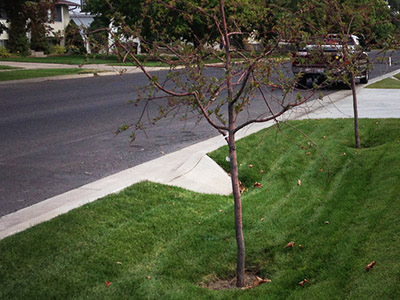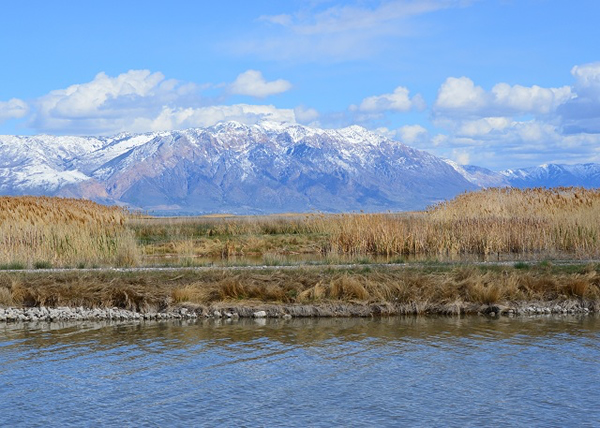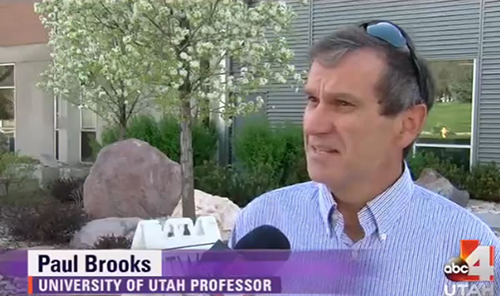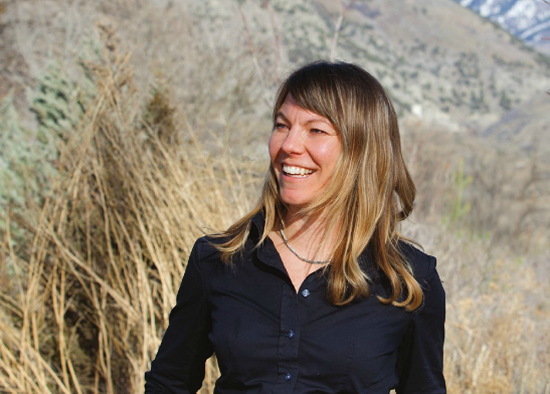Research News
May 3, 2016
USU Soil Scientist Discusses New Device To Assess Snowmelt
iUTAH researcher Scott Jones, a soil scientist from the department of plants, soils and climate at Utah State University was interviewed by KUSU reporter Katie Peikes about a new device to aid in predicting the state’s water supply. Jones explains the probe’s function saying it “fires a heat pulse for eight seconds and then you measure the temperature near the needle for another two minutes,” adding that “we have a model that describes this heating in the soil and you fit the model to those temperature rise measurements. The parameters that are fitted are basically describing the thermal conductivity and the thermal diffusivity of the soil.”
"We’re interested in soil moisture in the mountains because one of the aspects of the soil and the vegetation on the surface is that it forms the bottom boundary for all of the weather and climate interactions, and so understanding that boundary becomes quite important for getting better estimates of climate change and weather," Jones said.
Press: KUSU Radio

April 27, 2016
iUTAH researchers at Utah State University are taking a fresh look at stormwater management as part of a federally-funded study to improve water reuse in the western United States. The team of engineers, scientists and sociologists are among a growing group of water quality experts who say it’s time for new ideas in stormwater management. Their research proposal was chosen among five nationwide to receive part of an Environmental Protection Agency grant totaling $3.3 million. USU will receive $774,283.
Ryan Dupont, a professor of civil and environmental engineering at Utah State University and iUTAH researcher, and other scientists hope to change this scenario. As water quality experts, he and a team of researchers are exploring a new approach to stormwater management. This approach would replace the current concrete systems with a more natural system that minimizes contamination, and allows the water to be stored and reused. Decentralizing the infrastructure is a key component to the new approach. Preliminary data on the effectiveness of this new approach are being collected now.
The project is a collaborative effort involving two other iUTAH researchers. Doug Jackson-Smith, a professor of sociology, will gather the opinions of stakeholders and the public on this new approach to stormwater management. And Sarah Null, an assistant professor of watershed sciences, will study the possible ecological benefits of the proposed system. The project was recently awarded an Environmental Protection Agency grant for continued research.
Press: Utah State Today


April 18, 2016
Week-long Celebration of USU's Research Excellence

Utah State University Research Week 2016 featured iUTAH researchers and graduate students Kshitij Parajuli, Elizabeth Ogata, and Enjie Li. Talks and poster presentations by USU undergraduates and former iUTAH iFellows include Viviane Baji, Matthew Barnett, Jesse Fleri, and Josh Gathro. The Office of Research and Graduate Studies hosts a series of events annually in April, showcasing exceptional research and researchers at USU.
The final event on the Research Week calendar, Ignite USU, is an atypical lecture series where nine graduate and undergraduate students, “enlighten us, but make it quick.” Students share the stories behind their research and what drives their success in five minute talks with presentation slides advancing every 15 seconds. Enjie Li, doctoral student in the Department of Environment & Society, opened the Ignite USU series with her talk “Happy Baby, Frustrated Collaborator.”
Press: Utah State Today | USU Statesman | The Herald Journal
April 12, 2016
How climate change dries up mountain streams
University of Utah and iUTAH researcher Paul Brooks was recently featured in the news. Here’s an excerpt from the EurekaAlert article:
The western United States relies on mountain snow for its water supply. Water stored as snow in the mountains during winter replenishes groundwater and drives river runoff in spring, filling reservoirs for use later in summer. But how could a warming globe and a changing climate interrupt this process?
In a new study in Environmental Research Letters, a team of hydrologists that includes University of Utah professor Paul Brooks answers that question by simulating isolated climate change effects on Rocky Mountain stream systems, varying the type of precipitation (rain vs. snow) and the amount of energy (temperature) in the system. The answer, they found, depends less on how water enters the stream watershed, and more on how it leaves.
Press: UU News | EurekaAlert | KSL Radio | KUER Radio | ABC4 Utah | Deseret News | Science Daily | KULR TV | KTMF/KWYB


April 11, 2016
Transdisciplinary Research Calls
Melissa Haeffner talks about how her collaborations with iUTAH led to her interest in a transdisciplinary approach to research in the Utah State University Spring 2016 alumni magazine. As an iUTAH collaborator, she is part of a multi-institutional, interdisciplinary team of scientists exploring population growth, climate change and land use are affecting Utah’s water resources. This December, she will be one of 78 women participating in a 20-day women-in-science leadership trip to Antarctica.
“I really do believe that if we’re going to be talking about climate change, if we’re going to be talking about natural resources, we can’t just study ice and water and air and carbon,” says Haeffner. “The reason why these are problems is because they are problems for humans, problems for our human survival. They are anthropogenic problems, because of our impacts on the earth. And so to study these things without social sciences, I think, is just setting ourselves up for failure. It’s too big, too important a piece to miss.”

Credit Donna Barry, University photographer.


